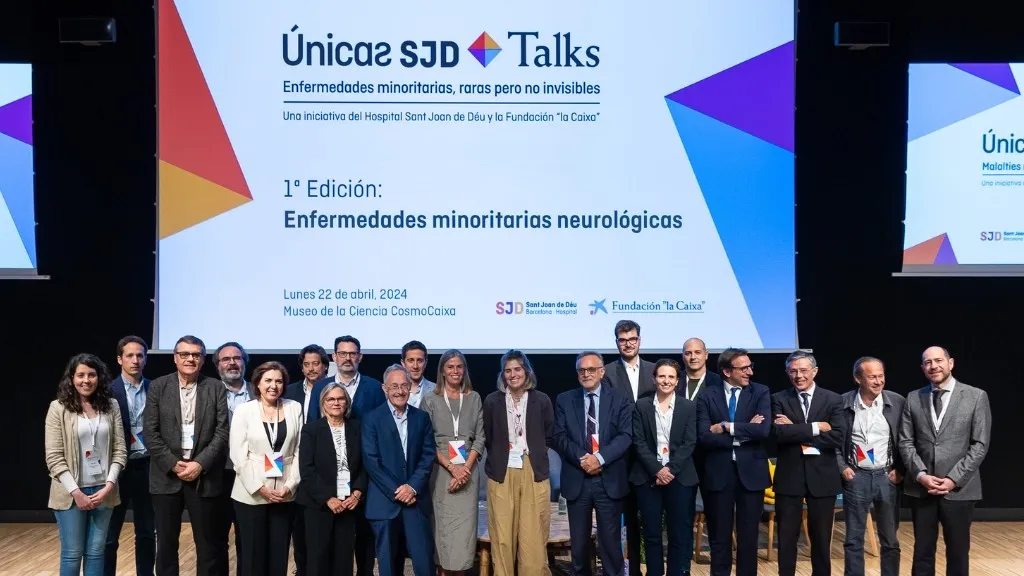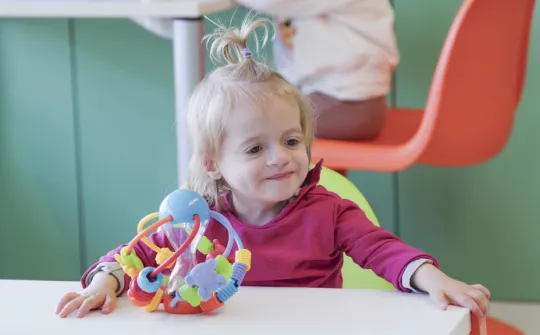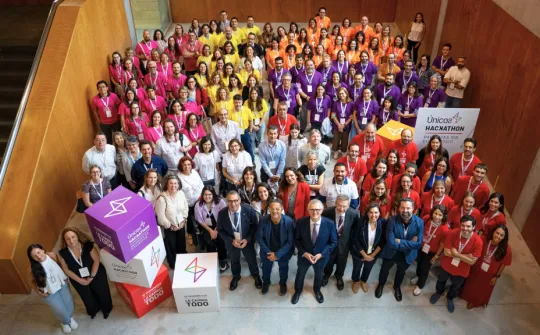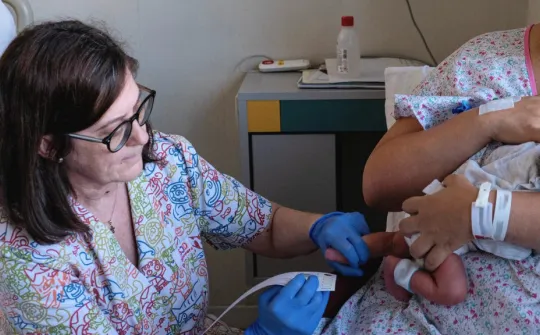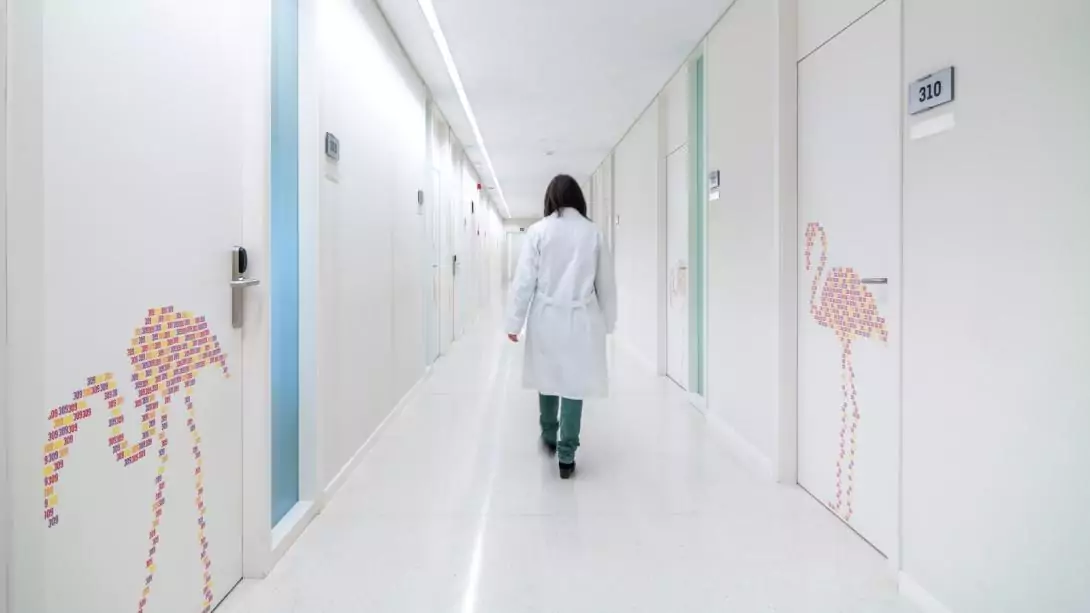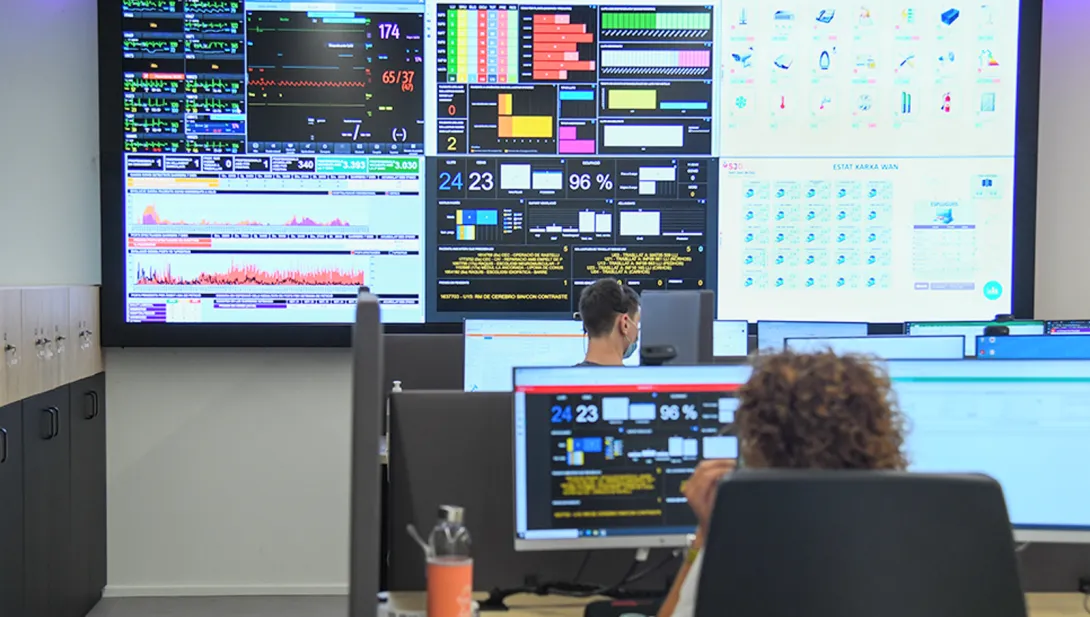Circuit of partnerships with other hospitals in Spain, European networks, companies and research centres to improve the diagnosis and care of patients with rare diseases.
What motivates the creation of the network
The Únicas Network is a project that aims to create an ecosystem of alliances to improve the care of children and adolescents with complex rare diseases, as well as their families. SJD Barcelona Children's Hospital is the centre promoting the project, which aims to weave a network of hospitals in Catalonia, Spain and Europe, and synergies with companies and research centres. At present, the response of the health systems in Spain and Europe is insufficient for the following reasons:
- Low number of specialised centres.
- Difficulty in accessing information about the disease, how to manage it and its prognosis.
- Complex and time-consuming process of obtaining a diagnosis.
- Lack of specific treatments for many rare diseases and, when available, they are often costly and have little scientific evidence.
- Difficulties in achieving integrated care and grouping sufficient caseloads.
- Lack of coordination between healthcare professionals.
- Difficulty of access to specialised centres, depending on the origin of the families.
- Lack of social support and intermediate care facilities to deal with chronicity or palliative care in the paediatric setting.
- Limited specific training resources in the field of paediatric minority pathologies.
The reality of rare diseases
of the population has a rare disease
of patients in our Hospital have complex minority diseases (including oncological processes)
average time to obtain a diagnosis.
patients still undiagnosed.
The Únicas Network programmes
SJD Barcelona Children's Hospital is the centre with the most pediatric activity in Spain, and third most active Europe. It treats more than 22,800 patients with complex minority diseases (14.2% of the total), making it the national centre with the highest number of pediatric patients with this type of pathology. For this reason, it proposes to lead a project that revolves around three platforms and six programmes:
The objective is to support the network’s centres through the application and development of new genomic diagnostic techniques (developed in the framework and in coordination with the ISCIII’s IMPaCT project), radiomics, metabolomics, molecular genetics of cancer and precision neurophysiological diagnosis.
This focuses on developing new treatments in collaboration with universities, research centres, hospitals, the pharmaceutical industry and health technology companies.
Creation of a federated data ecosystem in which each associated centre has its own information and shares the information needed to generate knowledge. Share4Rare aims to move towards personalised prediction and prevention models while researching rare diseases available to patients and families.
Advanced telemedicine platform to support synchronous, urgent and scheduled care will offer a service within reach of the network’s centres. The Cortex, or hospital control centre, provides real-time access to and evaluation of large volumes of data to improve care and hospital management.
The Institute is oriented toward creating a comprehensive care model for patients with minority diseases. It includes multidisciplinary teams of professionals, the generalisation of the figure of the case manager, the incorporation of psychosocial support teams, transition units to adult centres, and the monitoring of the census of minority diseases.
It is structured through the creation of a pioneering socio-health centre in Spain (which includes a home mechanical ventilation support centre) and a patient school. The centre aims to provide families with tools for the attention and care of chronic and complex pathology, and to reduce, as far as possible, admissions to the acute hospital.
Objectives of the Únicas Network
The project is aligned with several national and European strategies and programmes, including the 2030 Agenda for Sustainable Development, the plans for transforming the economy, the Next Generation programme and the European strategies for the care of rare diseases (ERNetworks), in whose network we participate with 21 accreditations. The main purpose of Únicas is to change the care model and sectors involved in the present and future care of rare diseases.
- Scientific and care impact. The project’s mission is to improve equity of access to excellence in care for paediatric patients with rare diseases, reducing variability in the study and treatment of the effects. The telemedicine model proposed by Únicas, in coordination with the network of partner hospitals, aims to improve access to highly specialised care, regardless of the patient’s place of residence, helping structure the national territory. It also seeks to generate a high scientific production capacity that will attract the pharmaceutical industry to research minority diseases.
- Social impact. The Network will impact thousands of people's health (nearly 400,000 cases of rare diseases in the population under 18 years of age in Spain) by improving their prognosis, access to treatment and quality of life. It will also advance personal autonomy, thanks to the empowerment of patients and their families, and the implementation of measures to improve their presence in the social and work environment, and raise awareness of minority diseases.
- Economic impact. The network of centres and partners is also expected to generate jobs and attract talent and highly qualified professionals. The attraction of competitive resources is one of the ways to finance the project, which can be a pole of attraction for companies and institutions and generate a multiplier effect in terms of cost-benefit.
- Digital transformation. The healthcare sector could move forward and become more technical. In this area, the Únicas Network will contribute to the digitisation of the healthcare ecosystem. The commitment to share data between the network’s centres, the adoption of technology, and the massive use of data to generate knowledge constitute the basis for generating a large nationwide database that brings together patients with rare diseases and attracts the research capacity of the industry.
Specialised services and units
We have specialised services and units that treat hundreds of patients with rare diseases every year. Among the specialities that work most with patients with rare diseases are nephrology, rheumatology, ophthalmology, neuromuscular and dermatological diseases, among others. More than 9% of the patients seen at SJD Barcelona Children's Hospital are attended by doctors like the ones you can find in this playlist (videos in Spanish).
Únicas SJD Talks
The SJD Barcelona Children's Hospital and "la Caixa" Foundation have joined forces to create a unique forum for dissemination and debate, the Únicas SJD Talks, to discuss the latest advances, points of view and trends in patient-centred clinical management, progress in diagnosis and the development of therapy for rare diseases.
First talk: Day 1: Neurological rare diseases
In the first edition of Únicas SJD Talks we had the opportunity to learn about the latest advances in knowledge and research into neurological rare diseases; the challenges and difficulties encountered by professionals in diagnosing these diseases; the new opportunities offered by gene therapies and other new technologies to find new treatments, and the difficulties that must be overcome to make them available to the patients who need them.
We were also able to learn first-hand, through the testimony of the families, what it is like to live with a rare disease and realise that the number of people affected is not only limited to the patients who have the disease, but also to all those around them.
The speakers at Únicas SJD Talks believe that significant progress has been made in the last two decades, but also that there is still a long way to go. Únicas, a network of 30 hospitals in Spain supported by the Spanish Ministry of Health, is working to change the history of these diseases and to ensure that patients can receive the best care regardless of where they live.
